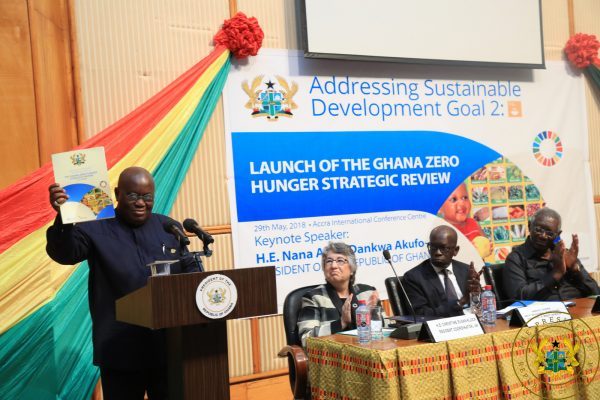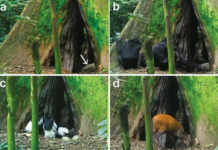By Nita Karume :
The Ghanaian President Nana Addo Dankwa Akufo-Addo launched the Ghana Zero Hunger Strategic Review Report earlier on this week. The review is a move initiated by the World Food Program. The independent, analytical and consultative exercise seeks to identify the key challenges to achieving zero hunger in countries where the program is based.
The report is targeting the realization of Sustainable Development Goal 2. This will help the country chart a sustainable path to eradicating hunger, food insecurity; generally all forms of malnutrition by the year 2030.
According to the report, everyone living in Ghana can have adequate and nutritious food throughout the year. However, this will only happen with a stronger integration between the pillars that affect food security and nutrition under the leadership of government.
The report maintains that ending hunger and malnutrition can only be achieved with a holistic approach. This should be centered on improvements in agriculture as well as other sectors that both directly or indirectly affect food and nutrition.
The report goes on further to stress the importance of comprehensive action in a bid to overcome aforementioned challenges. This would then explain the need for a food security and nutrition advisory board at the Office of the President. There is also for the production and consumption of foods rich in nutrients. Other than the increase in maize production, there has been a decline in production of traditional nutritious staple foods such as sorghum, millet, groundnuts and cowpeas over the past decade.
WFP Regional Director for West and Central Africa Abdou Dieng said the program would use this review as the basis for WFP’s five-year country strategic plan in Ghana. This is built to support the government’s excellent flagship programs and agricultural policies. He further added that they would work closely with the private sector to reduce post-harvest losses as well as malnutrition. Meanwhile, they will be sure to consider a market-based approach that will be self-sustaining.









